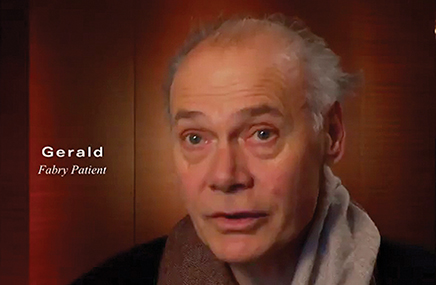Genzyme is taking rare disease awareness to another level with a documentary film, dubbed “Facing Fabry Together,” that follows four families grappling with the genetic disorder.
Genzyme manufactures Fabrazyme, an enzyme replacement therapy, for the disease.
The aim of the film is both to raise awareness of the disease and to educate newly diagnosed patients, along with their caregivers and physicians, about what it means to live with Fabry disease, which afflicts between 5,000 and 7,000 people worldwide. It’s a progressive disease. Many patients start experiencing pain and burning hands in early childhood, said Genzyme’s senior product manager for global marketing Jennifer Wound, but because of the absence of visible symptoms, they suffer undiagnosed for years.
“The reason we chose the video route is that where even with some of the other orphan diseases like Gaucher’s or Pompe, there are visible manifestations, with Fabry, it’s really not, and that makes it very hard to diagnose patients, so they go from physician to physician, and physicians say they’re just making it up,” said Wound. “There’s a chapter that really talks about that, the invisible disease, and how for many patients it’s almost a happy thing to be diagnosed, because you’ve finally figured out after all these years what you have.”
Because of its progressive nature, early diagnoses are essential and can mean much better outcomes, said Wound.
Genzyme tapped Washington agency Toolhouse to produce the film, which debuted in April—Fabry Awareness Month—with a microsite featuring the film whole or in chapters and a YouTube channel with short clips. Genzyme’s patient advocacy group has promoted it to patient orgs, but the Sanofi company is largely relying on word of mouth and search to net viewers. Kits have gone out to global affiliates, and subtitled versions in Spanish, Portuguese, Finnish and possibly Slovenian are in the works.
The use of the full-length documentary as patient education tool isn’t entirely unprecedented—Janssen/Centocor’s Innerstate, which followed the lives of several young people suffering autoimmune disorders, inaugurated the idiom back in 2007.
From the June 01, 2013 Issue of MM+M - Medical Marketing and Media








